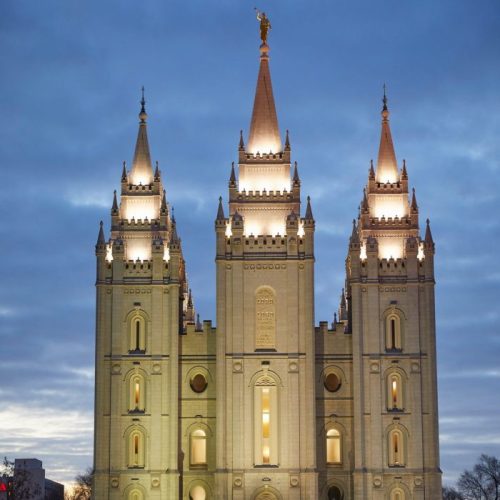The Church of Latter-day Saints and a non-profit organization it controlled have been fined over $4 million dollars by the Securities and Exchange Commission over charges that the religious organization failed to disclose its investment holdings properly.
According to the Wall street Journal, Ensign Peak agreed to pay the penalty for filling forms for shell companies that concealed the Church’s portfolio, instead of forms that would have disclosed their equity investments. Ensign’s control over investment decisions were also misstated in the filings.
In the order released on Tuesday, the SEC alleged that the church hid its investments and their management behind several shell companies from 1997 to 2009, thereby failing to disclose the size of their portfolio to the SEC and public.
The SEC’s order finds that, from 1997 through 2019, Ensign Peak failed to file Forms 13F, the forms on which investment managers are required to disclose the value of certain securities they manage. According to the order, the Church was concerned that disclosure of its portfolio, which by 2018 grew to approximately $32 billion, would lead to negative consequences. To obscure the amount of the Church’s portfolio, and with the Church’s knowledge and approval, Ensign Peak created thirteen shell LLCs, ostensibly with locations throughout the U.S., and filed Forms 13F in the names of these LLCs rather than in Ensign Peak’s name. The order finds that Ensign Peak maintained investment discretion over all relevant securities, that it controlled the shell companies, and that it directed nominee “business managers,” most of whom were employed by the Church, to sign the Commission filings. The shell LLCs’ Forms 13F misstated, among other things, that the LLCs had sole investment and voting discretion over the securities. In reality, the SEC’s order finds, Ensign Peak retained control over all investment and voting decisions. -SEC
“We allege that the LDS Church’s investment manager, with the Church’s knowledge, went to great lengths to avoid disclosing the Church’s investments, depriving the Commission and the investing public of accurate market information,” said Gurbir S. Grewal, Director of the SEC’s Division of Enforcement. “The requirement to file timely and accurate information on Forms 13F applies to all institutional investment managers, including non-profit and charitable organizations.”
The allegations first emerged in 2018, when a group known as the Truth and Transparency Foundation – formerly Mormon Leaks – claimed that the extent of the church’s investments had reached $32 billion.
In 2019, a Wall Street Journal report stated that a former employer, turned whistle blower, revealed that the church had amassed holdings in excess of $100 billion, prompting an investigation by the Internal Revenue Service.
The current size of Ensign Peak’s holdings remains a tightly held secret. The firm, based in Salt Lake City, was incorporated in 1997. Under SEC rules, it must disclose some types of investments, like U.S.-listed stocks, that it manages directly, which amounted to roughly $40 billion on Sept. 30. The remainder of the portfolio is made up of investments such as fixed-income securities, private companies or funds. Ensign Peak had an estimated $100 billion of holdings in 2019.
Investment managers with at least $100 million under management publicly report their stockholdings quarterly. The numbers are tracked by public companies and investors. About 5,000 entities file the form, according to SEC data made public in 2020. –WSJ
Gurbir S. Grewal, director of the SEC’s Division of Enforcement, in a statement; “The requirement to file timely and accurate information on Forms 13F applies to all institutional investment managers, including non-profit and charitable organizations.”
The church and Ensign Peak have denied any wrongdoing, saying that the fund was for use in difficult economic times.

